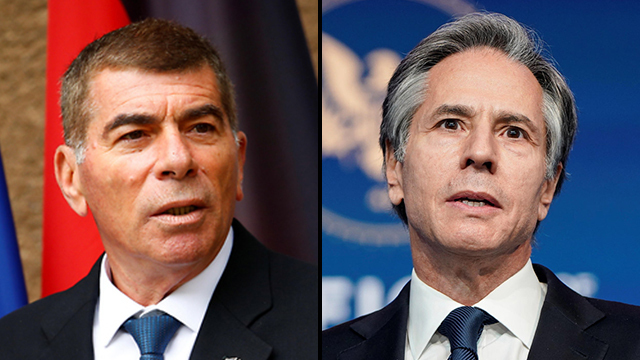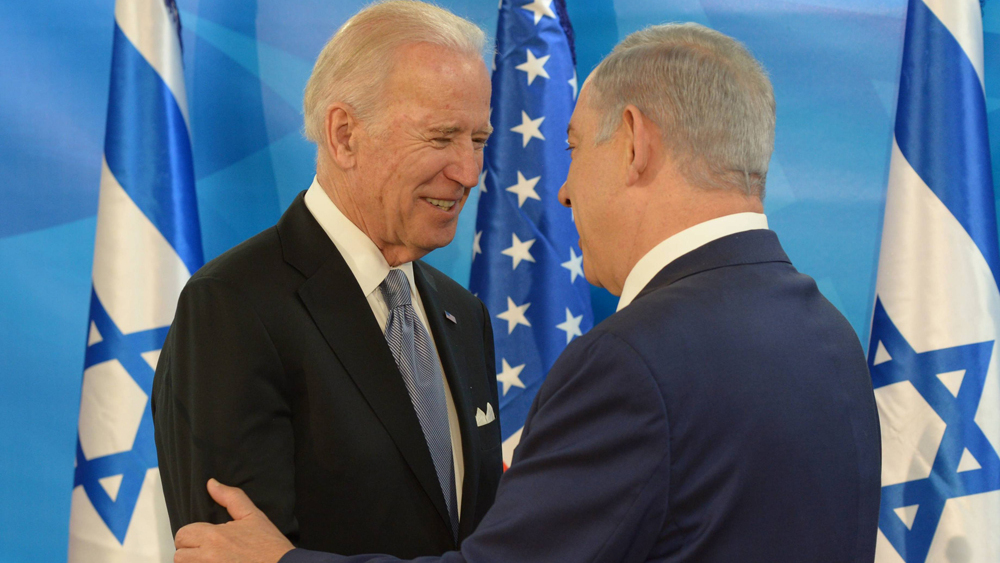U.S. Secretary of State Antony Blinken told Foreign Minister Gabi Ashkenazi on Monday that a two-state solution to the Israeli-Palestinian conflict was best for the future of Israel, the U.S. State Department said.
Blinken "emphasized the Biden administration's belief that the two-state solution is the best way to ensure Israel's future as a Jewish and democratic state, living in peace alongside a viable and democratic Palestinian state," the State Department said.
2 View gallery


Foreign Minister Gabi Ashkenazi and U.S. Secretary of State Antony Blinken
(Photo: Reuters)
The two diplomats discussed the strong friendship between the nations and agreed to work together to meet the challenges ahead, including any anti-Israeli initiatives in the international arena.
"Great speaking with @Gabi_Ashkenazi today to discuss our partnership, regional challenges, and Israel's efforts to combat the COVID-19 pandemic," Blinken wrote on Twitter after the call. "The United States remains unwavering in its commitment to Israel's security."
Earlier Monday, Prime Minister Benjamin Netanyahu convened senior cabinet officials to discuss Israel's position as the new U.S. administration pushes to revive the 2015 agreement with Iran to limit its nuclear activity abandoned by Donald Trump in 2018.
Defense Minister Benny Gantz, Ashkenazi, Mossad chief Yossi Cohen, National Security Advisor Meir Ben-Shabbat, Israel's envoy to the U.S. Gilad Erdan and senior security officials were also present at the meeting.
Netanyahu presented pessimistic predictions, according to sources familiar with the conversation, claiming the Biden administration was rushing into an agreement with Iran and that Israel would struggle to make an impact on American policy.
Both Gantz and Ashkenazi reportedly disagreed with the prime minister and expressed optimism that Jerusalem's position would be heard in Washington, and advocat for dialogue and cooperation with the U.S.
2 View gallery


Then-U.S. Vice President Joe Biden meeting with Prime Minister Benjamin Netanyahu in Jerusalem in 2016
(Photo: GPO)
The meeting ended with a decision to advance the establishment of a task force comprised of intelligence and diplomatic officials to work with their U.S. counterparts to promote Israel's position, sources said.
Ministers agreed to share with the Biden administration intelligence obtained by Israel on any Iranian violations of the 2015 deal, hoping it would embolden the U.S. to toughen its stance in future negotiations with Tehran.
National Security Advisor Ben-Shabbat was tasked with coordination with Washington despite the reported concern of security officials that he lacks the necessary background and struggles with his English.
First published: 07:36, 02.23.21

